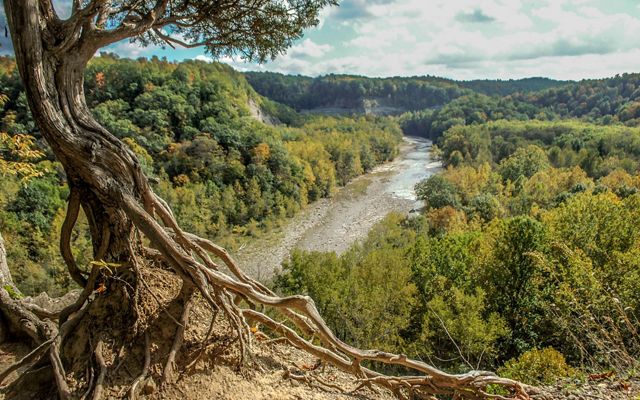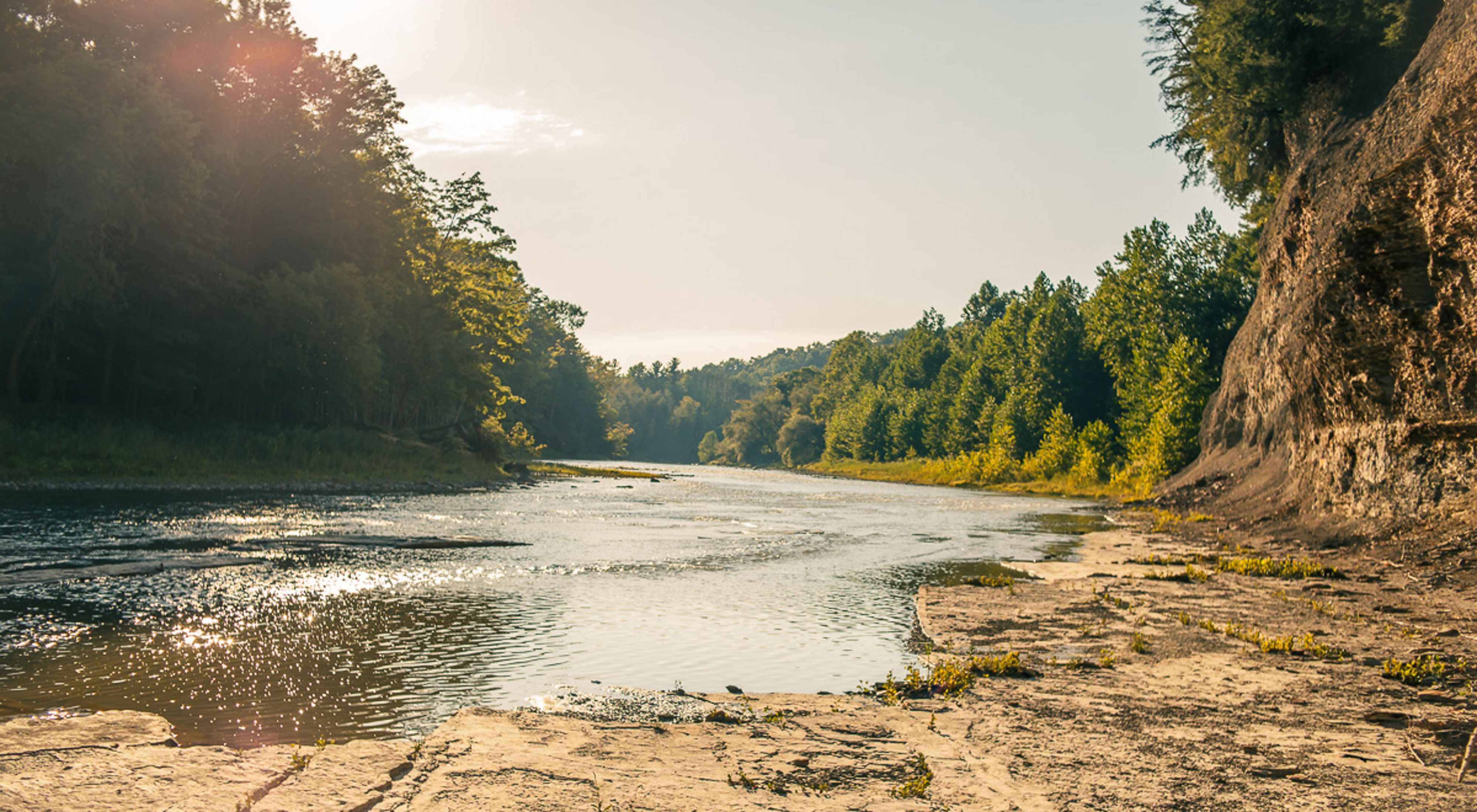
When an American Chestnut was discovered on his family’s land 25 years ago, Herb F. Darling, Jr. began a life-long journey to save the species, which has been all but obliterated by chestnut blight since the 1900s. In the years that followed, he fought for that tree. He proudly named it Zoar 1, after the forest in which it stood, and even erected an 80-foot-high scaffold to pollinate it and gather its seeds while researchers searched for ways to save the mighty giant.
Although Zoar 1 eventually perished, Darling remained committed to conserving the majestic Zoar Valley forests—for their beauty, value to people, and habitat for wildlife. So when it came time to sell his family’s 612 acres of mature forest, where he first found Zoar 1, he turned to The Nature Conservancy.


Since The Nature Conservancy began its work in the Zoar Valley in the early 1960s, the organization has protected about 1,800 acres of forestland here, including nearly four miles of land alongside the gorge, and established three preserves, including Deer Lick Preserve, a designated National Natural Landmark on Cattaraugus Creek.
“It was my father’s wish from years back that this land should be preserved and kept as naturally as it could be,” said Darling. “I just kept that enthusiasm. My children saw the benefits of protecting the land, and I’m hoping others will see the same benefits.”
Quote: Herb F. Darling, Jr.

From the high hills, you can see for miles and miles. And it is quiet. You stand up on one of those hills in the morning, and you can see the fog slowly rise up and disappear.
Beyond its scenic vistas and abundant plants and animals, a protected Zoar Valley maintains clean water and clean air while fighting against climate change. In these newly protected 612 acres alone, nearly 75,000 tons of carbon are stored—the equivalent of taking almost 16,000 cars off the road for one year.
“All that remains of Zoar 1 are three rocking horses that I had carved for my grandchildren, but the Zoar Valley is magnificent, and it needs to stay that way for generations to come,” adds Darling.
The newly acquired property is adjacent to protected lands that comprise one of the few remaining intact forests in New York’s Great Lakes region. Future collaborations will focus on adding the property to New York State’s 4,500 acres of protected lands in the Zoar Valley.
Help Us Tackle Climate Change by Planting a Billion Trees
The Nature Conservancy's Plant a Billion Trees campaign is a major forest restoration effort. It's a big number, but we know we can do it with your help.
